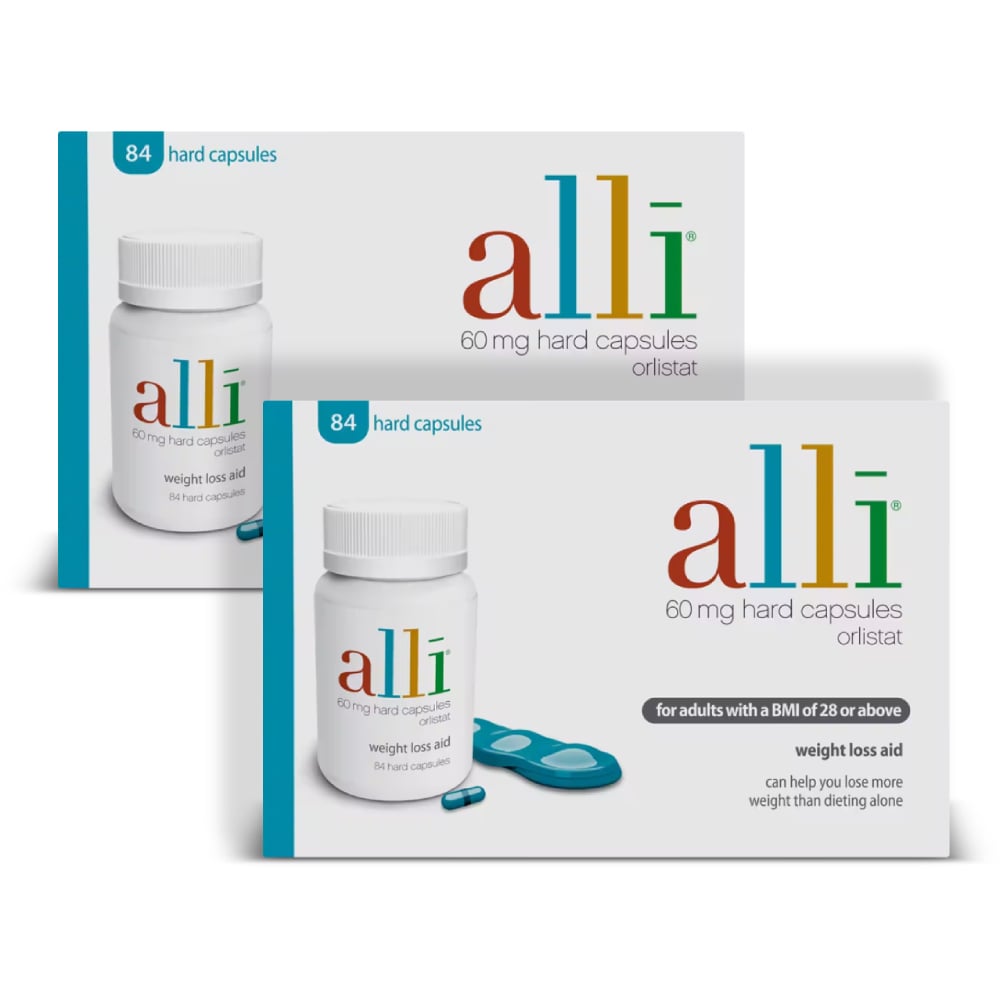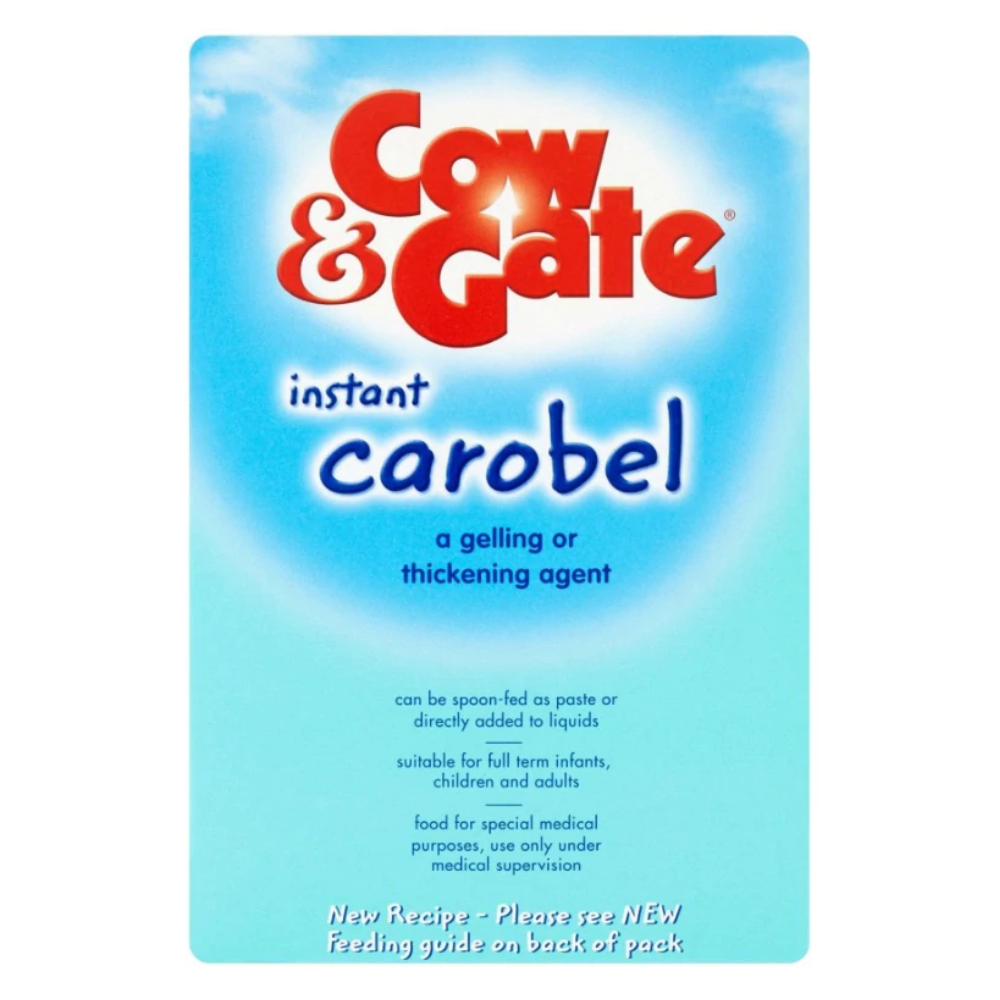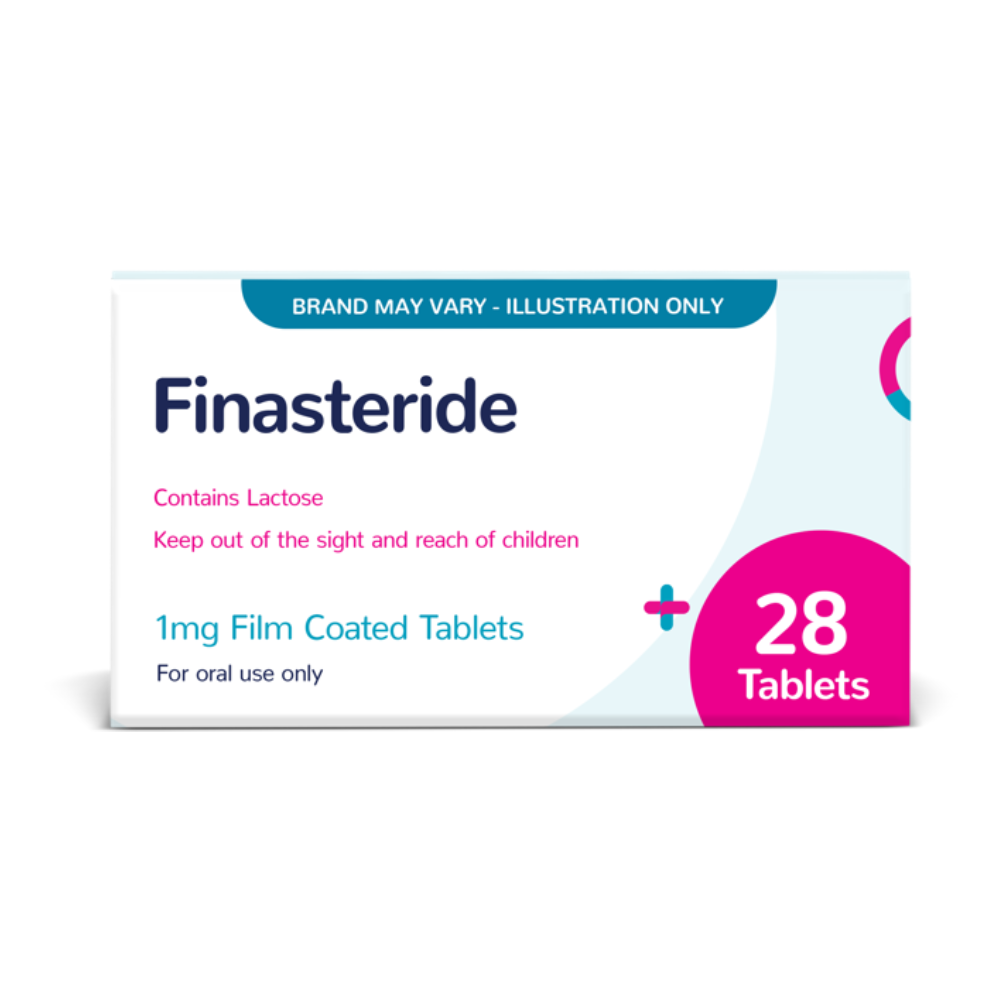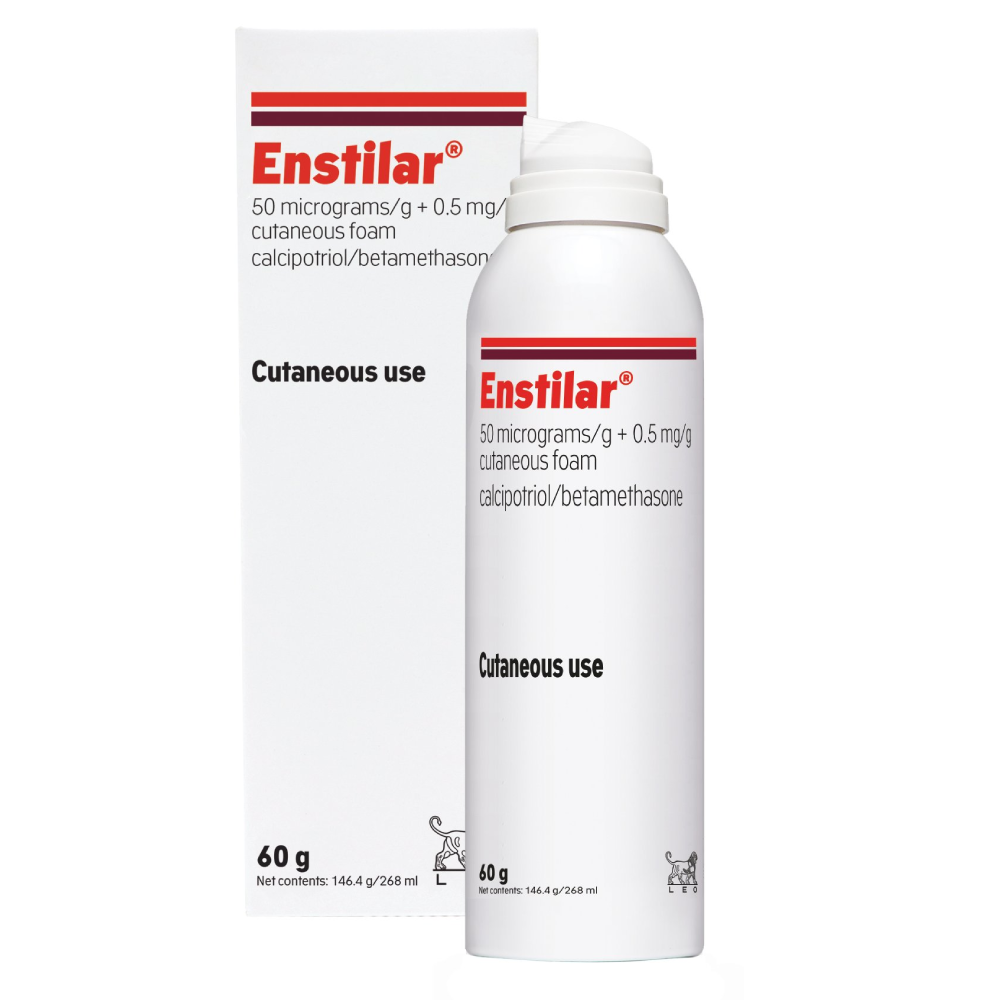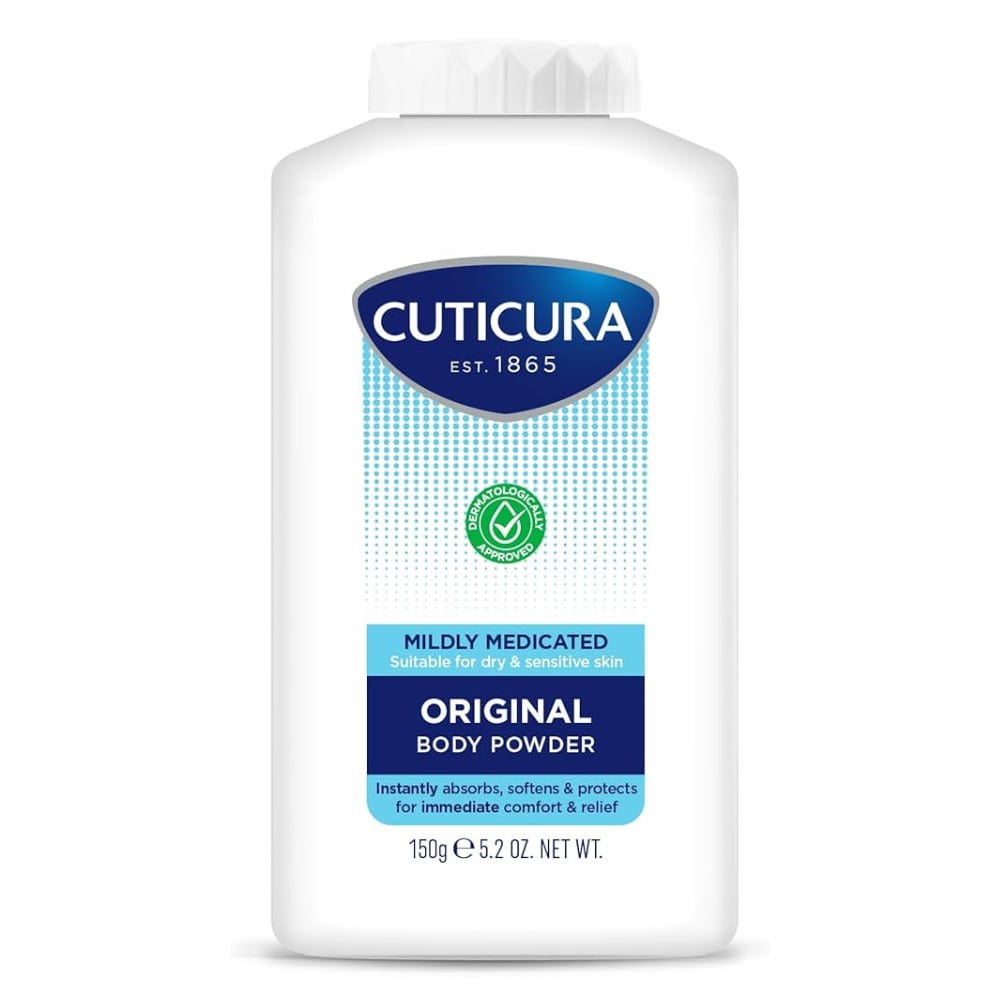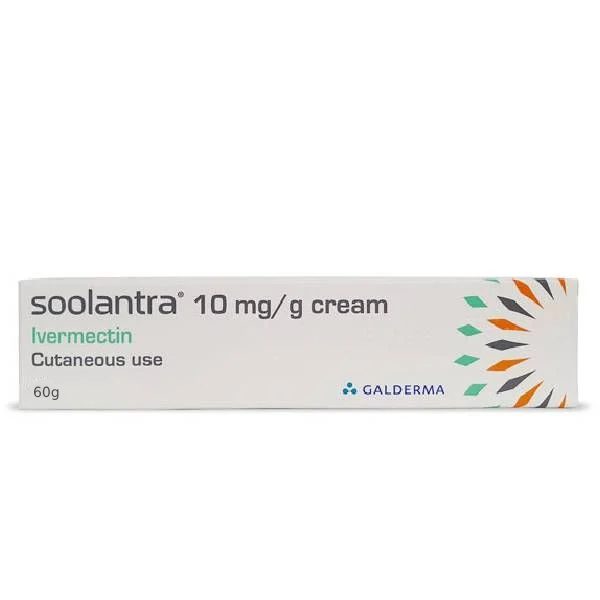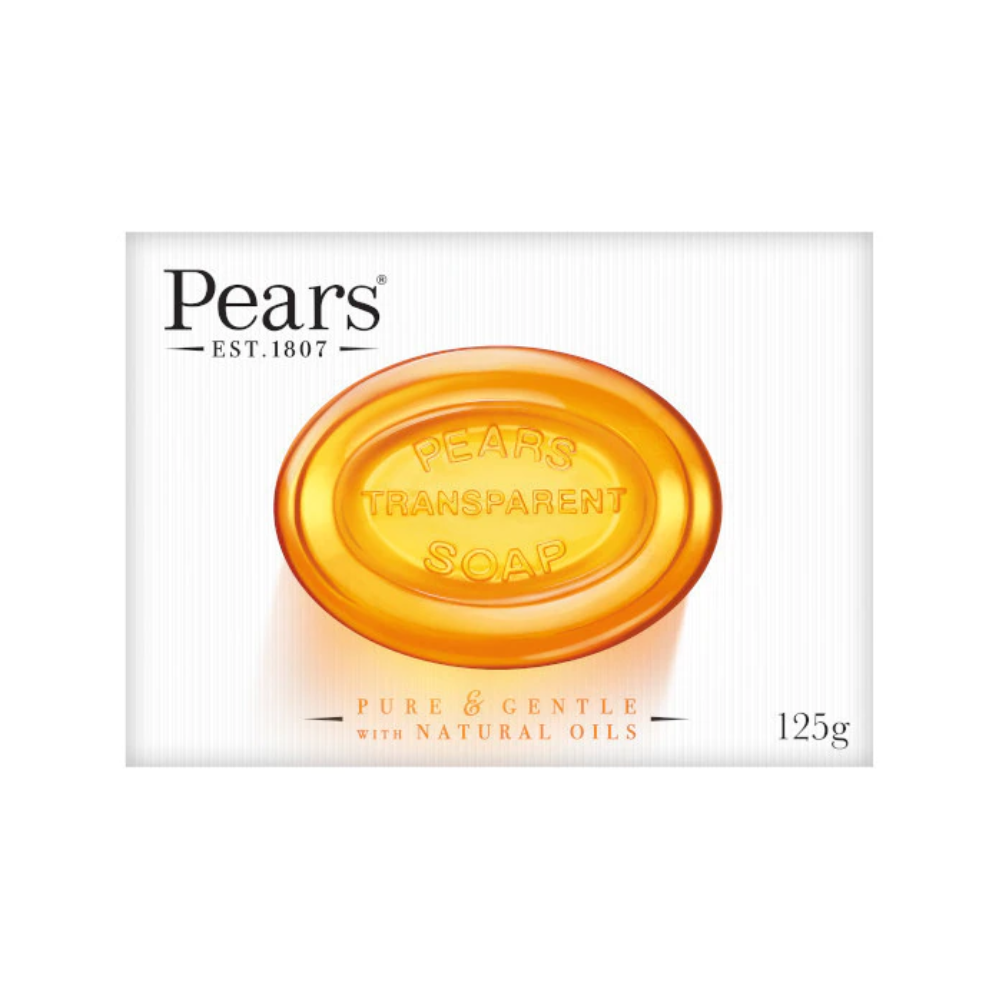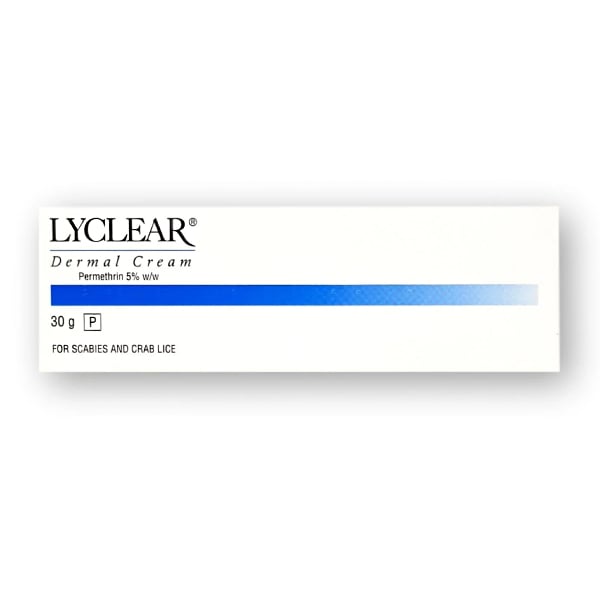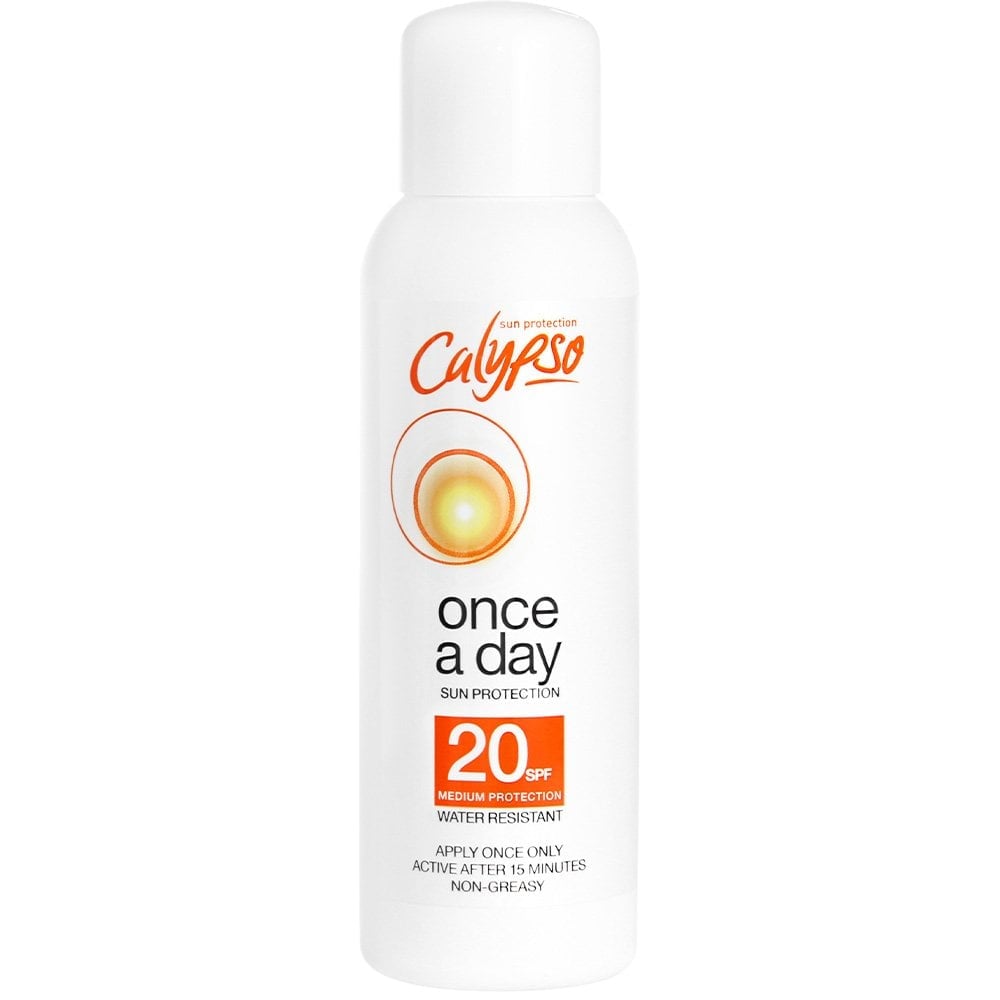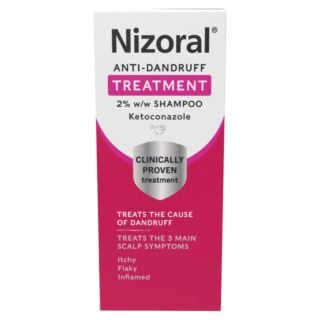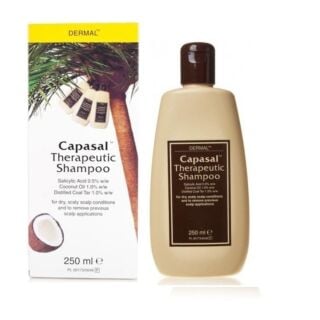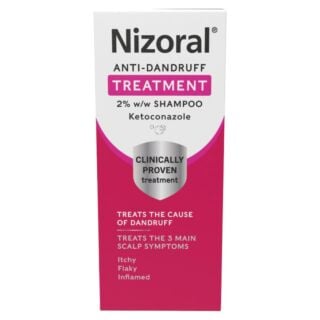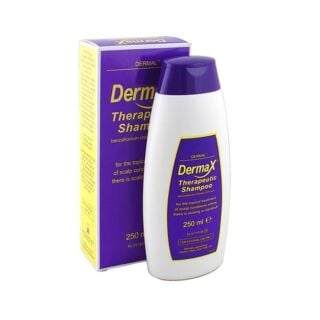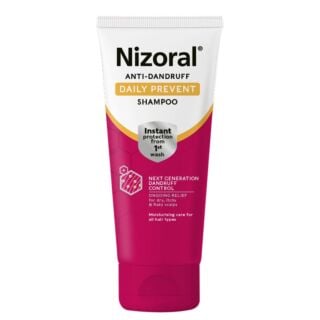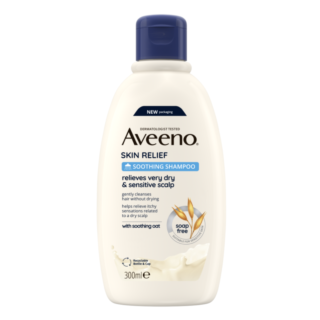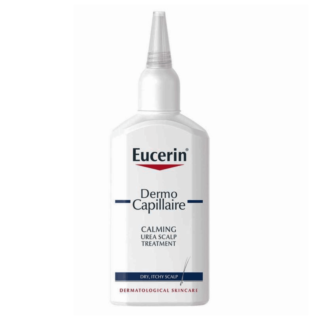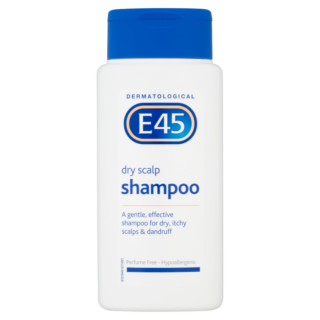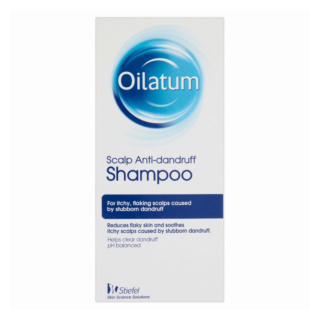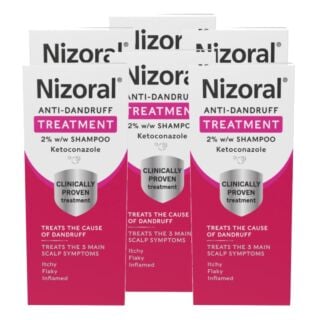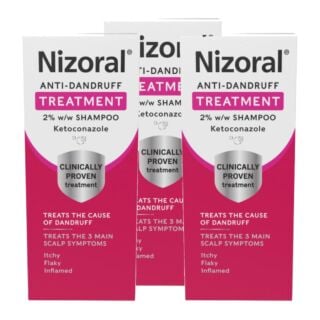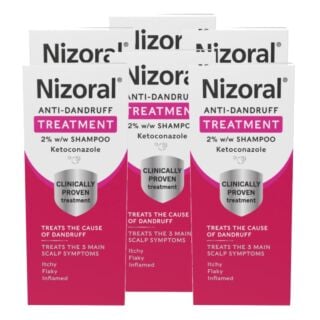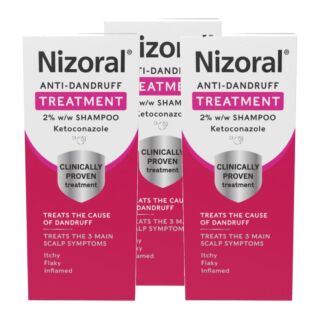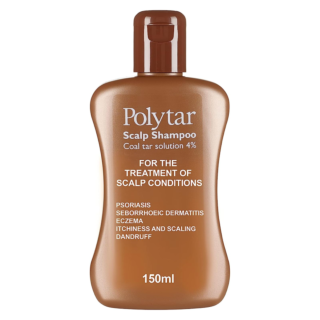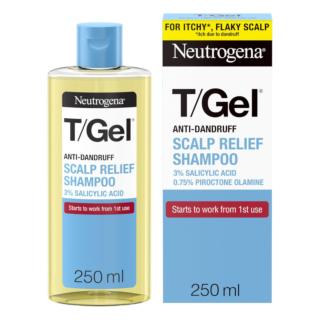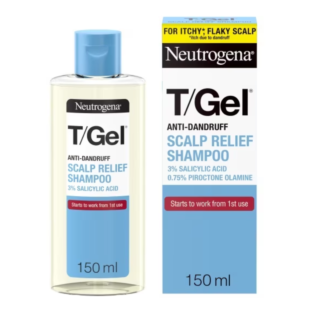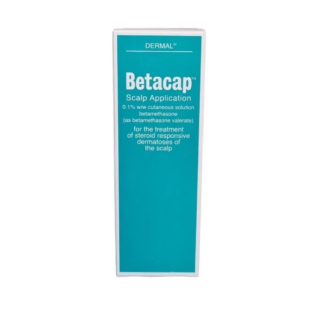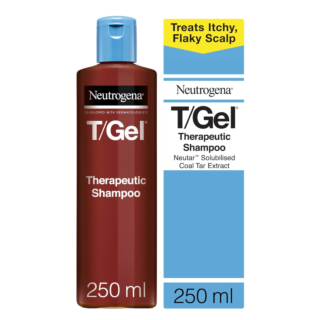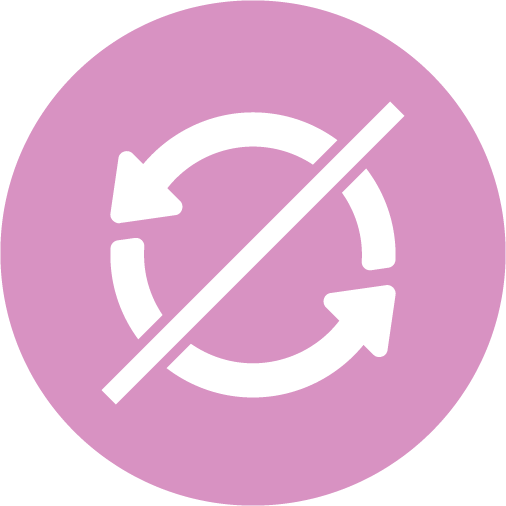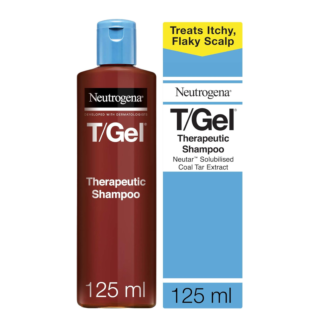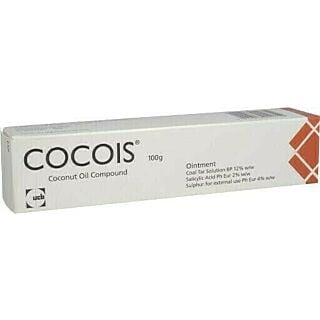Dry Scalp
A dry scalp can be both uncomfortable and frustrating - often causing itching, flaking and general irritation. … Read More See less
Whether it’s triggered by cold weather, a build-up of hair products, age or a skin condition such as eczema or psoriasis - finding the right products to relieve symptoms can make all the difference.
From hydrating shampoos to targeted treatments, there are plenty of ways to nourish your scalp and restore balance to your hair and skin. Whatever the cause, we’re here to help you feel more comfortable and confident, with solutions designed to support a healthy scalp.
What is dry scalp & what causes it?
Like general dry skin conditions, dry scalp happens when the skin on your scalp loses too much moisture, leading to flaking and irritation.
It’s a common condition and can affect anyone from newborns to adults. You might notice tightness, small flakes of skin on your clothes or a general feeling of discomfort. Symptoms may be worse in colder weather or after using certain hair products.
There are many reasons for dry scalp - it could be dry air, over-washing, certain shampoos or it could be due to an underlying skin condition like eczema or psoriasis. In some cases, it could simply be a change in your usual routine.
Unlike dandruff, which is usually linked to excess oil and yeast on the skin, scalp dryness is more due to a lack of moisture.
What are the symptoms of dry scalp?
Dry scalp can cause a range of uncomfortable symptoms. Here's what to look out for:
- Itching - one of the most common signs of scalp dryness is a persistently itchy scalp. You may feel the need to scratch throughout the day, and the urge might be worse in colder weather or after washing your hair
- Flaking - generally dry, white flakes that appear on your scalp or shoulders are another key symptom. Unlike dandruff, these flakes are usually smaller and not oily
- Tightness or sensitivity - your scalp might feel tight or sore - especially after using shampoo or hair styling products
- Dry or brittle hair - scalp dryness can sometimes affect your hair, leaving it dull and dry
- Redness or irritation - in some cases, the skin on your scalp may become red or inflamed - particularly if you've been scratching it
- Worsening symptoms in cold or dry weather - symptoms may often flare up in colder winter months or when indoor heating dries out the air in the room. These environmental factors make the scalp more prone to lose moisture
Scalp psoriasis
Scalp psoriasis is a long-term skin condition that can cause patches of dry, flaky skin on the scalp.
These patches are often thick, red and may be covered with silvery-white scales. While it may look like dandruff at first, scalp psoriasis can often be more persistent and may extend beyond the hairline to the neck, ears or forehead.
The affected areas can be itchy or sore and may be prone to cracking or even bleeding when scratched.
Some people may also notice temporary hair loss in areas with especially severe inflammation - though this isn’t caused by the condition itself but rather a result of the inflammation and itching. It usually regrows once the condition is under control.
There’s no cure for scalp psoriasis, but flare-ups can be managed with the right treatment. This may include:
- Medicated shampoos such as Polytar Scalp Shampoo or Capasal Therapeutic Shampoo
- Topical steroids like Betnovate Scalp Application or Elocon Scalp Lotion
- Gentle skincare routines using fragrance-free shampoos or applying natural oils like coconut oil to soften scaling
If you think you might have scalp psoriasis, your GP can help confirm the diagnosis and recommend the best course of treatment.
Eczema of the scalp
Eczema, also known as dermatitis, can affect the scalp just as much as it can affect other parts of the body.
Scalp eczema often causes dry and itchy skin, sometimes with flaking from the scalp. In some cases, the skin may become cracked or even weepy, especially if it’s irritated by scratching or harsh shampoos or styling products.
There are different types of eczema that can cause scalp dryness, but seborrhoeic dermatitis is one of the most common. This type of eczema is often triggered by a reaction to yeast that naturally lives on the skin called Malassezia, and it tends to flare up in oily areas like the scalp, face and ears.
While there’s no cure, scalp eczema can be managed with soothing treatments, including:
- Medicated shampoos like Nizoral which helps control flaking and inflammation
- Emollient scalp creams to hydrate the skin and reduce dryness
- Mild tropical corticosteroids for short-term relief of flare-ups
Keeping your scalp clean and avoiding fragranced products can all help reduce flare-ups and improve comfort.
What’s the difference between dry scalp and dandruff
Dry scalp and dandruff are often confused, but they have different causes and treatments.
While it’s true to say that both can lead to flaking and itching, knowing which condition you’re dealing with can help you choose the right products and manage the symptoms more effectively.
Dry scalp
- Caused by lack of moisture in the skin
- Flakes are usually small, dry and white
- Often linked to cold weather, dry air or a reaction to chemicals in some hair products
- Commonly feels tight, itchy or sensitive
- Treated with moisturising shampoos and emollients
Dandruff
- Usually caused by excess oil and a reaction to yeast on the scalp
- Flakes are typically larger, greasy and may appear yellowish-white in colour
- May be a symptom of a milder type of seborrhoeic dermatitis
- Scalp often looks red or oily
- Treated with antifungal or medicated shampoos like Nizoral
How is dry scalp diagnosed?
Dry scalp is usually diagnosed based on your symptoms and a visual examination of your scalp.
A pharmacist or GP will look at the condition of your skin and ask about your symptoms – for example is it itchy? Flaky? They may also ask you about any known triggers such as cold weather or if you’re using any new hair products.
In most cases, no formal tests are needed - but if symptoms are severe, persistent or if they look like a condition such as psoriasis or eczema, you may be referred to a dermatologist for a closer look and more a specialised treatment plan.
How do I treat dry scalp?
Treating a dry scalp often comes down to a few simple changes and using the right products. Here’s how to get started in five easy steps:
1. Switch to a gentle shampoo
Use a fragrance-free or moisturising shampoo designed for dry or sensitive scalps. Avoid products with alcohol or strong detergents, as these can strip away natural oils.
2. Try a medicated treatment
If flaking or itching is more severe, look for a medicated shampoo with ingredients like coal tar with salicylic acid or ketoconazole. These can help soothe any irritation.
3. Moisturise your scalp
Apply an emollient cream, scalp oil or leave-in conditioner to help restore moisture. Coconut oil or olive oil can also work well for a more natural hydration.
4. Avoid heat and harsh styling products
Blow dryers, straighteners and certain hair sprays can dry out the scalp further. Let your hair dry naturally when possible and opt for alcohol-free styling products.
5. Speak to a pharmacist if symptoms persist
If your dry scalp doesn’t improve after a few weeks of home treatment, a pharmacist can recommend stronger options or help you decide if it’s time to see your GP for a more personalised approach to treatment.
Is there a cure for dry scalp?
While there’s no simple cure for dry scalp that applies to each and every case, with the right treatment and care, symptoms can usually be managed and kept under control.
Identifying the cause is key to choosing the best treatment for you and preventing frequent flare-ups.
How can I prevent dry scalp?
To help prevent dry scalp, consider the following:
- Use a gentle, moisturising shampoo
- Avoid over-washing your hair
- Protect your scalp from cold weather by wearing a hat outdoors
- Try to limit the use of hairdryers, straighteners and fragranced hair products.
- Keep your scalp hydrated and your routine simple
Sources
- https://my.clevelandclinic.org/health/symptoms/23326-dry-scalp
- https://www.healthline.com/health/home-remedies-for-dry-scalp
- https://www.healthline.com/health/skin-disorders/dandruff-vs-dry-scalp
- https://my.clevelandclinic.org/health/diseases/22828-scalp-psoriasis
- https://www.nhs.uk/conditions/psoriasis/symptoms/
- https://www.guysandstthomas.nhs.uk/health-information/treating-scalp-psoriasis
- https://www.theindependentpharmacy.co.uk/eczema-dermatitis/betnovate-scalp-application
- https://eczema.org/information-and-advice/types-of-eczema/scalp-eczema/
- https://my.clevelandclinic.org/health/diseases/14403-seborrheic-dermatitis
- https://www.healthline.com/health/skin-disorders/dandruff-vs-dry-scalp#dry-scalp-causes
- https://www.webmd.com/skin-problems-and-treatments/understanding-dandruff-basics
- https://www.nhs.uk/conditions/dandruff/

Free delivery when you spend over £30

100% discreet delivery for every item ordered

Fully regulated UK pharmacy
How can Eucerin Shampoo help to soothe my dry scalp?
Eucerin Dry Scalp Relief Shampoo contains two ingredients which are found naturally in your skin but are often lacking in dry skin.
These ingredients are urea and lactate.
When you use Eucerin shampoo, it gives your dry scalp a boost of these ingredients, helping to ease dryness and relieve itching while keeping your hair looking healthy and shiny.

